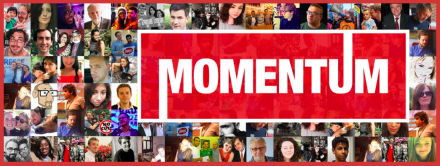
Stella Creasy’s speech at the LSE was a thoughtful and welcome contribution to party debate.
There is, she says, a culture on the left, perpetuated by Momentum, of sterile activism. This can take many forms “petitions, protests, boycotts, hashtags, meetings”. Petitions seldom achieve anything. Passing resolutions in meetings is meaningless unless you’ve changed people’s views along the way. More generally, “any form of activism which doesn’t have a suggested solution attached to it or resources to make it happen is little more than a displacement activity. And that’s the same whether you are in office or in opposition.”
You can achieve more, says Creasy, by winning elections and having a positive agenda than by protesting. This means engaging with the views and voices of all those who aren’t politically active.
Well Billy Bragg once sang “wearing badges is not enough in days like these”, but I don’t think he was suggesting that parliament is the only or even necessarily the best route to achieving real change. No parliament ever even contemplated stopping a sitting prime minister from going to war until two million people took to the streets of London in 2003. Labour policy would be empty verbiage unless it’s grounded in the struggles that ordinary people have fought, and continue to fight, for human rights, trade union rights, tenants rights, an LGBT agenda, against the risks of fracking, and so on.
OK : passing resolutions calling on Labour to reverse forced academisation of schools is of limited value (who’s it supposed to convince ?). But saying that the only solution is to elect a Labour government in 2020 is equally unsatisfactory. Labour activists should work with others to harness the opposition that already exists among parents, teachers, and so on to ensure that our schools retain the right to remain in public hands.
Momentum hasn’t yet delivered a mass campaign. But the “righteous” organisation against which Creasy directs her fire isn’t one that I recognise.
Let’s remind ourselves why there was such strong appetite for Corbyn’s leadership campaign. In 2010 and again in 2015 Labour simply wasn’t able either to articulate a sufficiently convincing narrative of what Labour in power had achieved, or to give people any real sense of ownership of and identification with Labour’s programme. Corbyn offered a renewed sense of purpose, and the possibility of connecting with layers of people who’d given up on Labour, or on politics altogether.
The reason why Momentum exists is that the Labour Party isn’t yet equipped to deliver Corbyn’s vision. Labour has bureaucratic structures, unaccountable policy making processes, and members feel disempowered. Labour members should be given more of a say over party policy and how the party is run. The digital technology exists to do this. Creasy rightly warns against fighting for entrenched positions while ignoring what the public thinks so let’s engage with the public more. Momentum’s statement of aims includes the following commitment: “Bring together individuals and groups in our workplaces and communities to campaign and organise on the issues that matter to us.”
No-one would deny that Momentum is a work in progress. It’s been setting up democratic structures so that it can collective decisions can be made as to what its future priorities, and ways of working, should be. Many of its members including myself are new or recently rejoined party members, who’ve been working up to now without a great deal of guidance from Momentum nationally, and I’m sure we’ve all made our share of mistakes.
In general though, Momentum supporters who’ve been putting forward all kinds of resolutions should be commended, not criticised. Labour policies need changing urgently, and it’s right that this should be debated at all levels of the party. Yes we need to win elections, but to do that we need a vision of what we’re fighting for that can inspire people. There’s a separate debate to be had as to the extent to which Labour MPs should be accountable to their local parties, but at the very least it’s appropriate that these MPs should be made aware of the feelings and views of local party members.
Of course Momentum needs to look beyond meetings and resolutions: encouraging more people to join Labour, encouraging more members to become active in as many ways as possible, providing support for those who want to become candidates and to change things themselves, election canvassing, reaching out to the disenfranchised and getting more people onto the electoral register, and linking arms with campaigning groups and organisations in our local areas, those who have a vision of a different society. It’s a daunting agenda, but I’m hopeful we can show Stella Creasy that we are in this for real change, not political grandstanding.
Nick Wall joined the Labour Party when Jeremy Corbyn was elected leader. He is a GMB rep.




More from LabourList
‘The High Court judgment brings more uncertainty for the trans community’
‘There are good and bad businesses. Labour needs to be able to explain the difference’
‘This ruling should now remove any remaining barrier to approval of EHRC code’